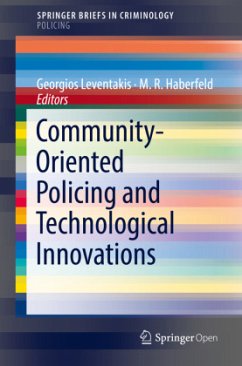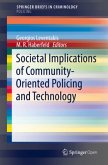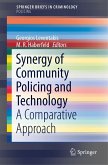This Brief presents new approaches and innovative challenges to address bringing technology into community-oriented policing efforts. "Community-oriented policing" is an approach that encourages police to develop and maintain personal relationships with citizens and community organizations. By developing these partnerships, the goal is to enhance trust and legitimacy of police by the community (and vice versa), and focus on engaging the community crime prevention and detection efforts for sustainable, long-term crime reduction.
The contributions to this volume emphasize how technological innovations can advance community-oriented policing goals, such as:
-Strengthening community policing principles through effective and efficient tools, procedures and approaches
- Accelerating communication between citizens and police forces
- Early identification, timely intervention, as well as better crime reporting, identification of risks, unreported and undiscovered crime through the community
Contributions to this volume were developed out of the Next Generation Community Policing (NGCP) International Conference was co-organized by nine contributing research and development projects, funded by the Horizon 2020 SECURITY Program of the European Commission. It will be of interest to researchers in criminology and criminal justice, as well as related fields such as sociology, public health, security, IT and public policy. This book is open access under a CC BY license.
The contributions to this volume emphasize how technological innovations can advance community-oriented policing goals, such as:
-Strengthening community policing principles through effective and efficient tools, procedures and approaches
- Accelerating communication between citizens and police forces
- Early identification, timely intervention, as well as better crime reporting, identification of risks, unreported and undiscovered crime through the community
Contributions to this volume were developed out of the Next Generation Community Policing (NGCP) International Conference was co-organized by nine contributing research and development projects, funded by the Horizon 2020 SECURITY Program of the European Commission. It will be of interest to researchers in criminology and criminal justice, as well as related fields such as sociology, public health, security, IT and public policy. This book is open access under a CC BY license.








